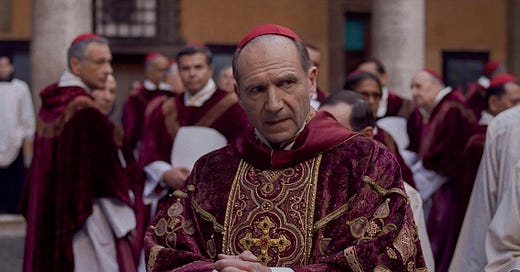The certainty of others
Conclave uses the Catholic Church as a grand stage for old-school drama
© 2024 Focus Features
If you’ve been following me for a while, you know I do most of my first-run moviegoing during Oscar season, when I see all the Best Picture nominees and a plurality of others so I can make predictions. It’s silly, but it gets me out of the house and makes me feel like part of something bigger than myself. During the rest of the year…
Keep reading with a 7-day free trial
Subscribe to Roy Edroso Breaks It Down to keep reading this post and get 7 days of free access to the full post archives.



